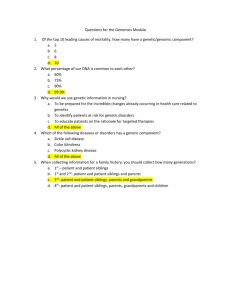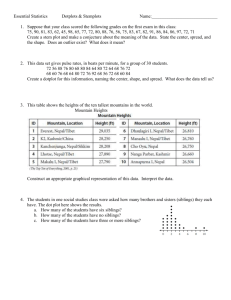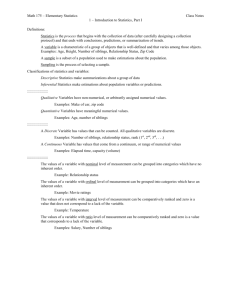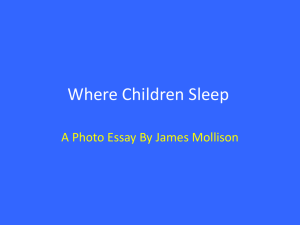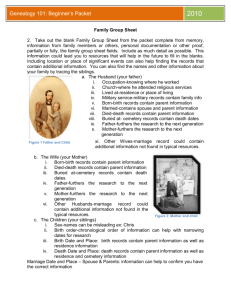JOURNAL OF RESEARCH ON ADOLESCENCE, 20(2), 287–306 r 2010, Copyright the Author(s)
advertisement
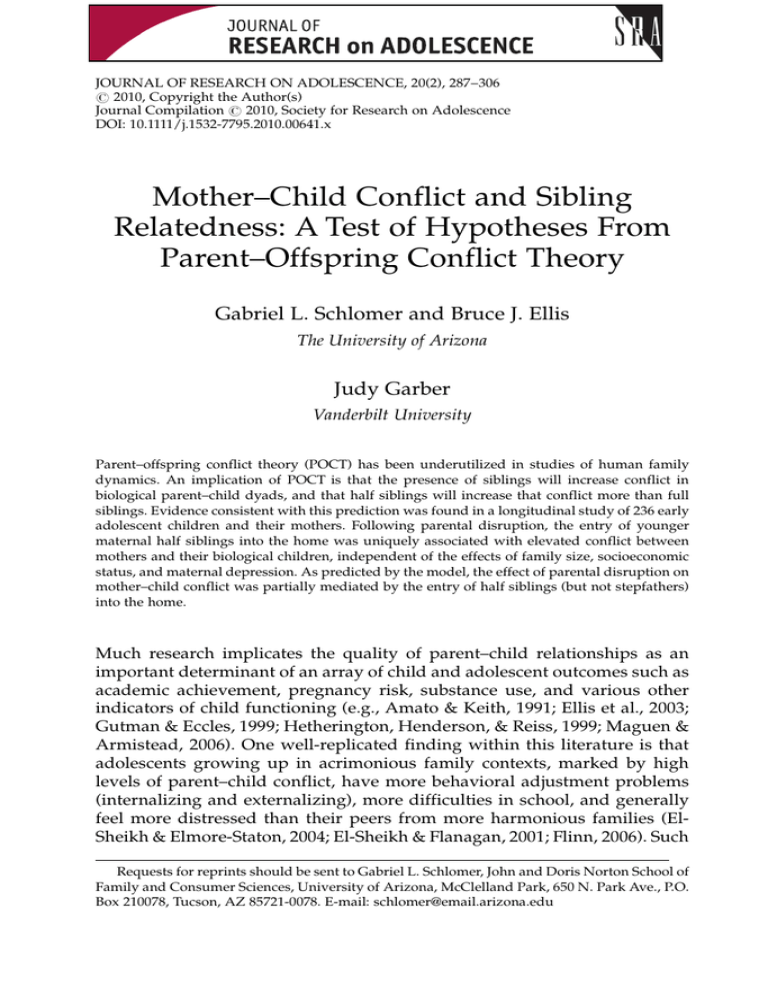
JOURNAL OF RESEARCH ON ADOLESCENCE, 20(2), 287–306 r 2010, Copyright the Author(s) Journal Compilation r 2010, Society for Research on Adolescence DOI: 10.1111/j.1532-7795.2010.00641.x Mother–Child Conflict and Sibling Relatedness: A Test of Hypotheses From Parent–Offspring Conflict Theory Gabriel L. Schlomer and Bruce J. Ellis The University of Arizona Judy Garber Vanderbilt University Parent–offspring conflict theory (POCT) has been underutilized in studies of human family dynamics. An implication of POCT is that the presence of siblings will increase conflict in biological parent–child dyads, and that half siblings will increase that conflict more than full siblings. Evidence consistent with this prediction was found in a longitudinal study of 236 early adolescent children and their mothers. Following parental disruption, the entry of younger maternal half siblings into the home was uniquely associated with elevated conflict between mothers and their biological children, independent of the effects of family size, socioeconomic status, and maternal depression. As predicted by the model, the effect of parental disruption on mother–child conflict was partially mediated by the entry of half siblings (but not stepfathers) into the home. Much research implicates the quality of parent–child relationships as an important determinant of an array of child and adolescent outcomes such as academic achievement, pregnancy risk, substance use, and various other indicators of child functioning (e.g., Amato & Keith, 1991; Ellis et al., 2003; Gutman & Eccles, 1999; Hetherington, Henderson, & Reiss, 1999; Maguen & Armistead, 2006). One well-replicated finding within this literature is that adolescents growing up in acrimonious family contexts, marked by high levels of parent–child conflict, have more behavioral adjustment problems (internalizing and externalizing), more difficulties in school, and generally feel more distressed than their peers from more harmonious families (ElSheikh & Elmore-Staton, 2004; El-Sheikh & Flanagan, 2001; Flinn, 2006). Such Requests for reprints should be sent to Gabriel L. Schlomer, John and Doris Norton School of Family and Consumer Sciences, University of Arizona, McClelland Park, 650 N. Park Ave., P.O. Box 210078, Tucson, AZ 85721-0078. E-mail: schlomer@email.arizona.edu



